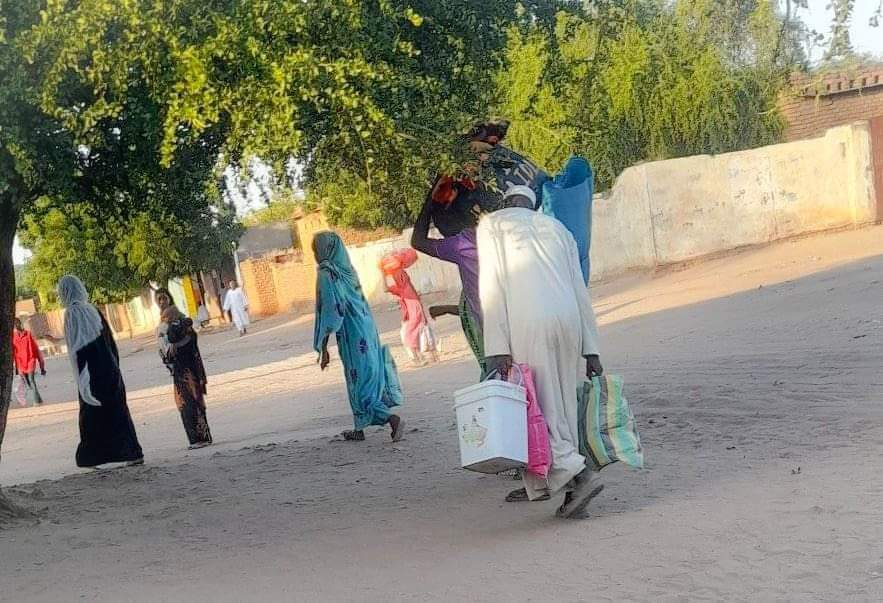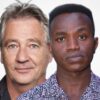“Words are inadequate to describe the horrors in Sudan,” said Clementine Nkweta-Salami of the UN humanitarian organization OCHA recently in New York. “What happens there on borders is pure evil.”
The ongoing conflict between Sudan Armed forces (SAF) and the paramilitary Rapid Support Forces (RSF) has resulted in what may be the biggest massacre in the seven-month-old war. Masalit, a population group from African origins, fell victim to the assault that took place in and around Ardamata, whereas the perpetrators are RSF members from Arab populations. The RSF has been gaining ground and using these victories to carry out a new wave of ethnic cleansing. Ardamata is situated just north of El Geneina in the western Darfur region.
Wednesday November 1st
The government base at Ardamata finds itself surrounded by the RSF and their Arab allies. Adjacent to the base lays a secondary boys’ school. “Three rockets hit the square next to the school where many people had gathered, and two hit the school itself,” according to eyewitness Farid. “One fell on a classroom at west side, killing at least nine people, including two women. I got shrapnel wound in my arm.”
Thursday November 2
Kamal Adam, a teacher in Ardamata, “On Thursday, November 2, the RSF soldiers surrounded Ardamata. They started searching houses of prominent Masalit,” he said. “On that day they killed Mohammed Arbab, an 85-year-old traditional leader, along with his son and eight grandchildren, as well as two other leaders.” The funerals of the deceased were interrupted by the RSF gunfire. “We had to leave the bodies uncovered and ran in panic in all directions.”
Following daybreak at the government base, the soldiers make a startling realization that their army commanders have deserted them without any prior notice. In the darkness of the night, the officers silently slipped away, leaving the junior soldiers behind. “They departed without informing us,” expressed Ibrahim, a soldier serving under the government. “All of a sudden, the RSF appeared right in front of us.” Khamis, another soldier, added, “We were completely unaware of the leadership’s covert withdrawal, and as a result, defeat swiftly followed.”
Youssef finds himself in a clinic located on the base when the RSF forcefully storms in. “The wounded were shot at, but I managed to escape by maneuvering behind walls and through bushes.” As the assailants flood the area, soldier Gamareldin Mohammed strategically lies down on the ground, concealing himself under the body of a fallen comrade and pretending to be deceased. “I covered myself with the dead body and its blood.”
Amidst the triumph declared in front of the barracks by Abdelrahim Hamdan Dagalo, the brother of RSF leader Hemedti, a large group consisting of two thousand soldiers and civilians embarks on a journey through the mountains. Many fall victim to ambushes orchestrated by the RSF. “Everyone was running for their lives. If someone got hurt, you didn’t have time to help him up,” said one of the soldiers.
Tribal leaders in Ardamata have initiated negotiations with the RSF and their Arab militias, aiming to secure the safety of the camp’s residents in exchange for the surrender of all firearms. However, this supposed agreement is nothing but a ruse, as the RSF soldiers continue to escalate their campaign of ethnic cleansing against the Masalit community. “They ordered all men to leave their homes and all women to stay indoors,” according to an official. “Slaves, get out,” they shouted.
Abdu Mohammed Ibrahim, observing from his house overlooking a vast field, witnesses RSF members and Arab militiamen herding numerous young men into a field. These victims are then divided into groups and positioned in different corners before being mercilessly gunned down. Among the casualties are individuals as young as twelve years old, whom Abdu personally knows by name. The incident is further corroborated by a nearby shopkeeper near the football field, who hears the cries of the youths pleading, “Don’t burn us,” before the sound of gunshots shatters the air.
Samira and her family were frightened by the sound of gunfire and attempted to flee Ardamata. According to Samira, “We saw how two fighters on a motorcycle stopped a young woman and raped her in the street. We couldn’t help her, we had to move on.”
Friday November 3
In the morning, Hussein and his twin brother Hassan are enjoying a cup of tea in the residential area of Ardamata when suddenly; soldiers from the RSF and militia members on horseback and motorcycles abruptly halt in front of their home. They proceed to shoot Hussein’s twin brother right in front of their mother and proceed to ransack the house, stealing money, phones, and other valuable possessions. Witnessing this scene, the women present quickly come to Hussein’s aid, encircling him and swiftly dressing him in an abaya, a long robe traditionally worn by Muslim women. As Hussein looks outside, he is confronted with the sight of lifeless bodies of young men, many of whom are his age, some with their hands bound and gunshot wounds to their heads. This marks the beginning of a pogrom against the Masalit community, primarily targeting young men, in the town of Ardamata. The attackers relentlessly shout, “Kill the Masalit!” Amidst this chaos, Hussein manages to escape the danger, aided by the protective circle of women, and successfully evades several RSF checkpoints until he reaches Adré in Chad.
In Ardamata, the sight of lifeless bodies is ubiquitous. Mustafa, a resident said, “At every step I saw bodies, some covered with blankets,”. The throats of two innocent children seem to have been brutally slit. Doctor Hayder meticulously counts a total of 95 deceased individuals on that fateful day. “I found an 18-day-old baby in a house next to her mother and four other women. All wounds resulted from gunshots aimed at the chest or head.”

Saturday November 6
A group of men and children, surrounded by RSF and other fighters sit at the bridge of Ardamata. “Execute them all,” says one fighter, “let’s take revenge on them one by one,” shouts another.
Sunday November 7
A group of Arab militiamen forcefully enter the residence of a 45-year-old farmer residing in Ardamata. They proceed to gather seven individuals in front of the house. “The moment I came out, they shot at the seven men at close range. They were all lying there on the ground. One of the attackers said to me, ‘Do you see how many we killed?’ They told me to leave the city.” As nightfall arrives, Arabs arrive at the police station in trucks and donkey carts, carrying stolen goods such as doors, window frames, vehicles, and rickshaws. Arab women enthusiastically encourage and support their actions.
Sunday November 26
Ardamata, a desolate place with only a handful of residents, bears witness to the presence of mass graves scattered throughout its vicinity. “The dead bodies at the army base and in the neighborhoods on the other side of the bridge are all buried by the RSF,” said Dr Ahmed, “but there are still bodies in the northern part of Ardamata.” Countless Masalit remain in RSF detention centers. “There is no more fighting, but they still shoot young people. They continue to kill and plunder.” Teacher Kamal Adam, residing in Ardamata: “We victims of the RSF want only one thing, and that is that they take responsibility for both old and new crimes, and that they provide reparations.”
This detailed account of the massacre is compiled from approximately 100 eyewitness interviews conducted by Reuter, Human Rights Watch, and our own interviews, with the assistance of Dr. Abdelmonin Ali.
This article was first published in NRC on 27-11-2023

